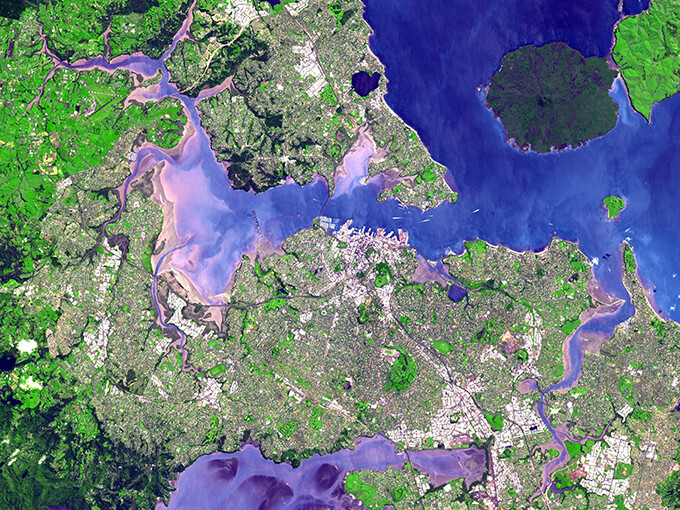Nov 21, 2019 Politics
?Metro ?columnist Matthew Hooton on local council, Phil Goff, and Auckland’s housing and transport issues.
Auckland’s twin disasters of transport and housing are by and large local issues, yet voters don’t behave as though they are. For general elections, nearly 80 per cent of us bother to vote. Even in the most politically disconnected parts of South Auckland, the turnout is around two-thirds. But when it comes to voting for Auckland Council, the turnout is a pathetic one-third.
The quality of candidates is usually blamed, and by god it was dire in 2019. Metro’s editor endorsed Phil Goff only because there was no one else. I endorsed John Tamihere solely on the grounds he might shake things up. After he decided to use Nazi slogans in a Ponsonby beer hall, I voted for Tom Sainsbury’s Fiona.
In fact, that two political relics of the 1980s and 2000s respectively were the only credible candidates makes sense. The time demands of the job chairing meetings, attending events and cutting ribbons are enormous, but the mayor is only one vote on the governing body of 21. The same is true of every councillor. Without a proper party system, maintaining a stable majority — as a prime minister does in Parliament — is almost impossible.
But even were that achieved, the governing body has little power anyway. The council officers act with far more independence — and contempt for the elected politicians — than even the Wellington bureaucracy. And even they have no control over the Orwellian-named council-controlled organisations (CCOs) like Auckland Transport (AT) and Ports of Auckland, who pay no heed whatsoever to the views of their political or bureaucratic masters. Consequently, serious politicians and other community leaders are uninterested in standing for mayor or council, so two-thirds of voters can’t be bothered voting for those who do.
To take one example, many of us think the container and used-car port in the CBD should be closed and a new one built at Marsden Pt. But Goff claims to have no control over that decision. His impotence is nearly as frustrating for those who think the port should stay where it is.
Similarly, when it comes to what AT might decide to do with a road, footpath, rail line or cycleway, Goff and his councillors are no greater stakeholders than you and I are. They basically have no function.
Goff promised a review of the CCOs before Christmas but, based on his 40-year record in politics, he’ll most likely end up broadly maintaining the status quo while agreeing to a few presentational tweaks. What’s really needed is wholesale reform of the failed Super City.
The Super City model was instigated under Helen Clark and implemented under John Key, so left and right can share — and thus avoid — all the blame for the fiasco. The model has the worst characteristics of both left and right, combining Soviet-style centralisation of political decision-making with the non-accountable corporate structure of 1980s state-owned enterprises (SOEs).
The whole point of turning, say, the Post Office into an SOE like Telecom was to get it operating commercially for a while, free of political control, so it could then be sold. That made sense when the government wanted to stop providing services like telephones that would be better supplied by the private sector. But it makes no sense for organisations providing basic municipal services like roads and sewerage or loss-making berthage and quay-crane service for global shipping lines.
Unless the council plans to sell AT, Watercare and Ports of Auckland, even the purest Rogernome can accept them being put under more direct political control.
If Goff is serious about eliminating Auckland’s democratic deficit, he needs to plan a visit to Switzerland to look at radical decentralisation. With fewer than nine million people, it has more than 2000 local councils ranging from a few hundred thousand people down to a few dozen.
They have extraordinary autonomy, developing regulations and raising revenue broadly however they want. Over 10 per cent of GDP is raised in taxes at the local level, compared with just 4 per cent in New Zealand, although the total tax burden in Switzerland remains less than ours.
This means local government is truly local and its decisions really matter. In many cases, they are made by the whole community in town meetings.
Under the Swiss system, if people in, say, Ponsonby wanted greater housing density including higher apartment blocks, they could just get on and do it. They would then generate more revenue — including from a local GST on the sale of new houses — and be able to provide more amenities to a growing population. If people in nearby Mt Albert wanted a more traditional community structure and stable population, that’d be up to them.
It sounds like a recipe for chaos. But, compared with Auckland, chaos is not something usually associated with Zürich, Geneva or Lausanne. Nor is homelessness or transport bedlam.
Could Goff surprise us all and yet turn out to have the vision and talent to deliver Auckland something radically better? Almost certainly not. Three more years of mediocrity and drift lie ahead.
This piece originally appeared in the November-December 2019 issue of Metro magazine, with the headline “Failed city”.






